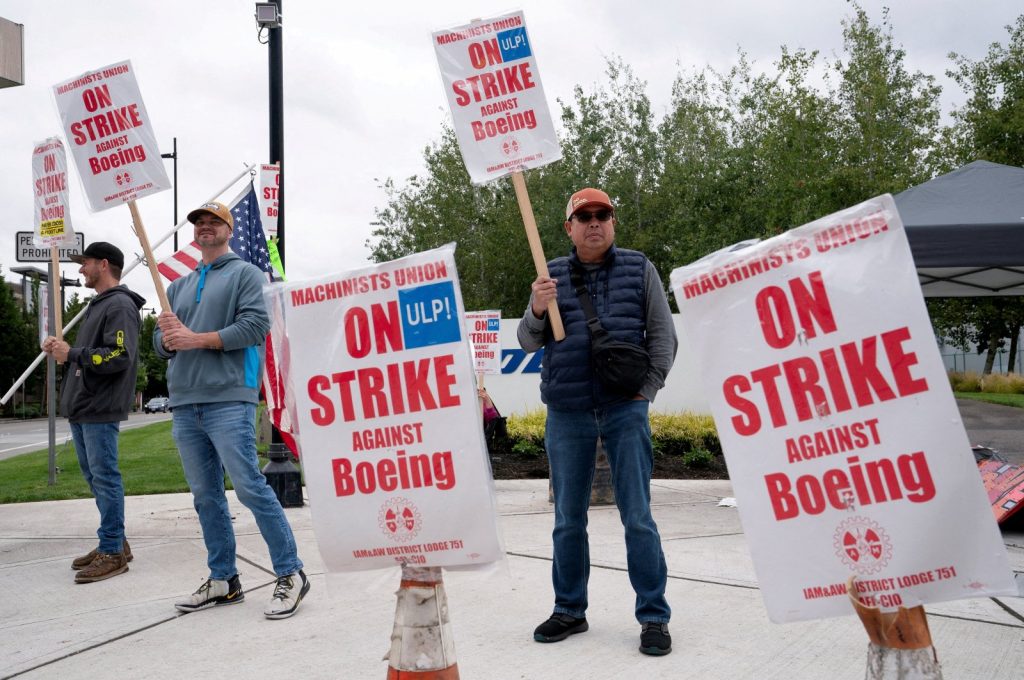Boeing has officially retracted its offer of a 30% pay increase for striking workers after negotiations with union representatives reached a standstill. The company accused the union of failing to give its proposals serious consideration.
The International Association of Machinists and Aerospace Workers (IAM) claimed that Boeing was “determined to adhere to an unnegotiated offer” that its members had already rejected. Last month, Boeing announced what it termed its “best and final” proposal, which included the 30% increase spread over four years—significantly lower than the 40% raise demanded by the union.
In a letter to employees, Boeing Commercial Airplanes President Stephanie Pope stated, “The union made non-negotiable demands far beyond what is sustainable for us to remain competitive.” She added that further negotiations were pointless given the circumstances, leading to the withdrawal of the offer.
Union representatives countered that Boeing was unwilling to negotiate the terms of its latest offer. According to IAM, negotiators attempted to address multiple priorities that could have led to a proposal suitable for a vote, but the company refused to make concessions.
More than 30,000 Boeing workers in the northwest U.S. initiated a strike last month after overwhelmingly rejecting a tentative agreement with a 25% pay raise. The strike has resulted in the suspension of jobs for tens of thousands of employees, as production of certain aircraft has been halted.
Boeing announced that U.S.-based executives, managers, and staff would be required to take one week of furlough every four weeks for the duration of the strike. The company indicated that the strike’s impact would depend on its length, with analysts suggesting that a prolonged stoppage could cost Boeing and its suppliers billions of dollars.
The last significant strike at Boeing occurred in 2008 and lasted approximately eight weeks. This current impasse adds to the challenges faced by Boeing’s new CEO, Kelly Ortberg, who was appointed in August to revitalize the company. Before the strike, Boeing was already grappling with historic losses and production slowdowns due to quality control concerns.




